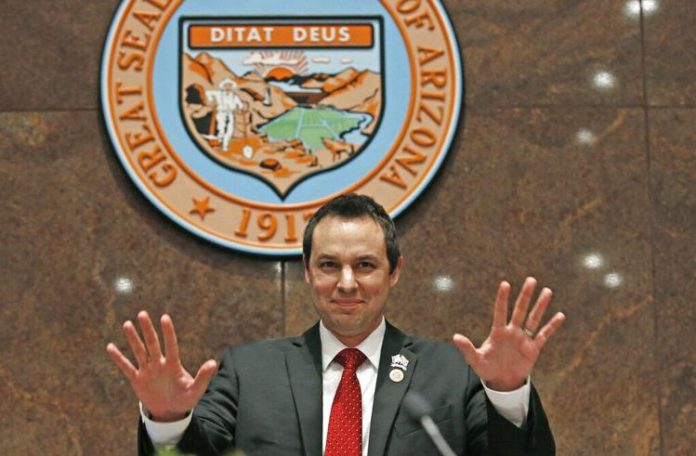
Arizona taxpayers could soon get half of the state’s annual surplus of funds sent back to them as an income tax cut the following year.
The state Senate passed SB 1577 Wednesday afternoon. Sponsored by Chandler Republican Sen. J.D. Mesnard, the bill would require the Joint Legislative Budget Committee to assess state revenue numbers. If the committee certifies an ongoing surplus after accounting for population increases and inflation, the Department of Revenue must cut the individual income tax rate to lower revenue by 50% of that surplus.
If enacted, the bill would take effect in 2024.
“It simply gives some of the surplus back to the taxpayer, which may reduce increases in spending but at no time cuts spending,” Mesnard said in an earlier committee hearing on the bill.
The legislation is opposed by several municipalities and public-sector unions, the latter often advocating for increased spending on public education that could theoretically be hampered by recurring cuts in state revenue surpluses.
“This bill would trample all of our dreams,” said Rep. Mitsi Epstein, D-Tempe. “Cutting the tax rate is what makes our tax structure so terribly regressive.”
Epstein said that an Arizona residents with moderate income could pay 13% of their total income in various taxes, income taxes being just a small portion. “But, if you’re a wealthy CEO, and good for you if you are, you pay a lot of income tax. And therefore, when income tax is cut, it helps the CEO,” she said.
The bill passed 16-13 along partisan lines and now awaits a hearing in the House of Representatives. Should the bill fail in the lower chamber or be vetoed by Gov. Katie Hobbs, Mesnard has a ballot measure that would do the same thing if approved by voters. It too was also passed by the Senate Wednesday and sent to the House Thursday.
Republished with the permission of The Center Square.













